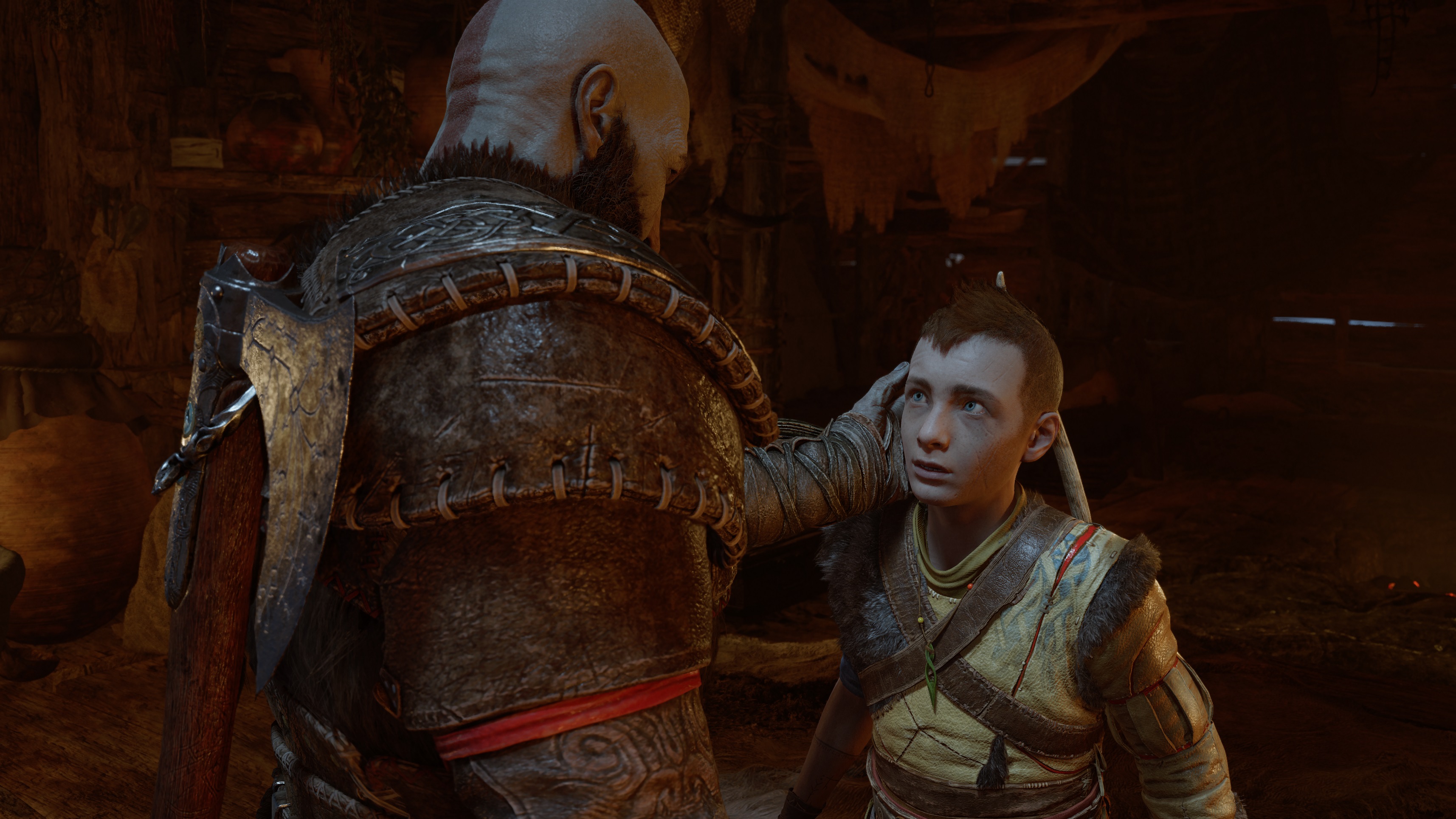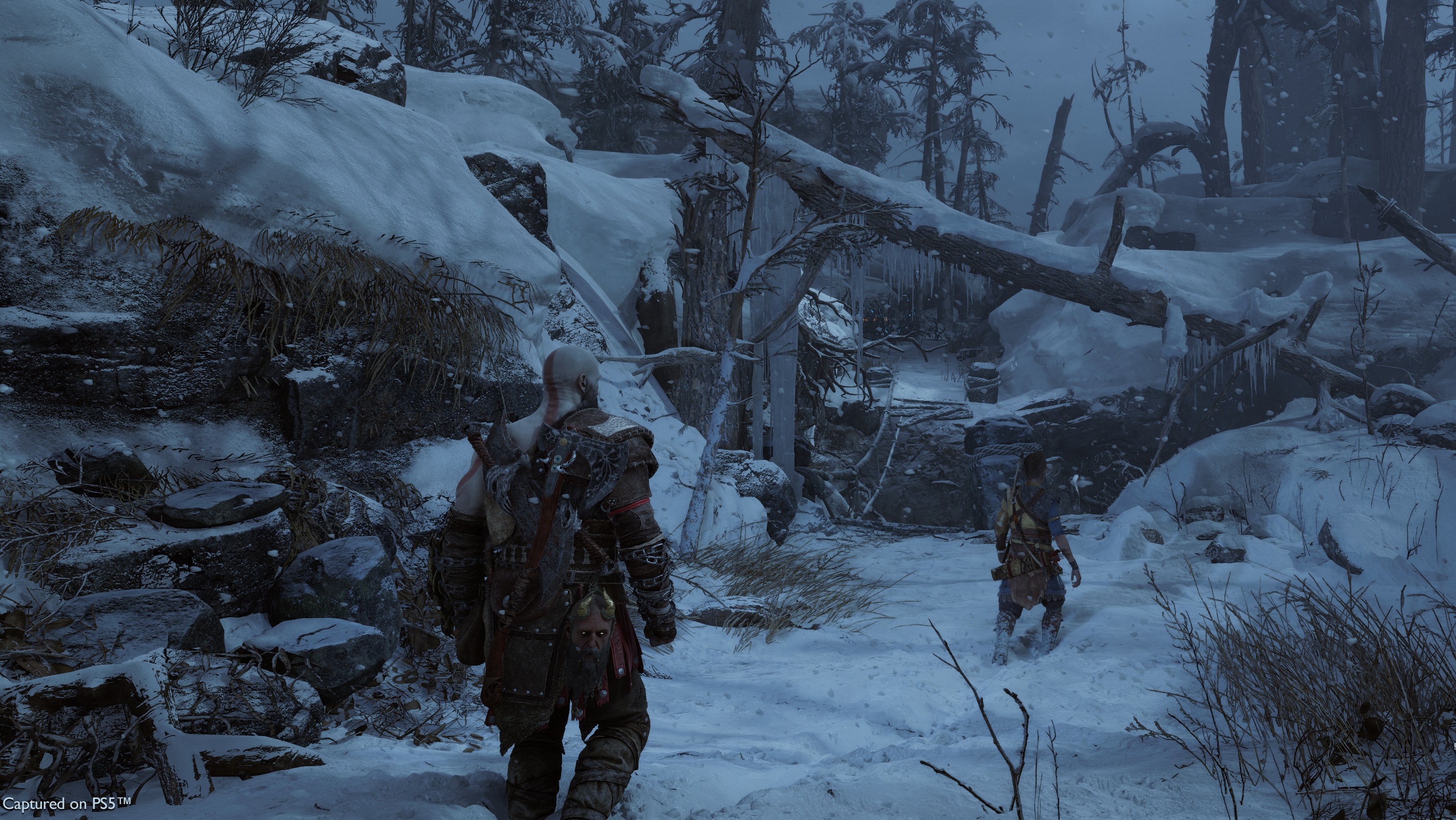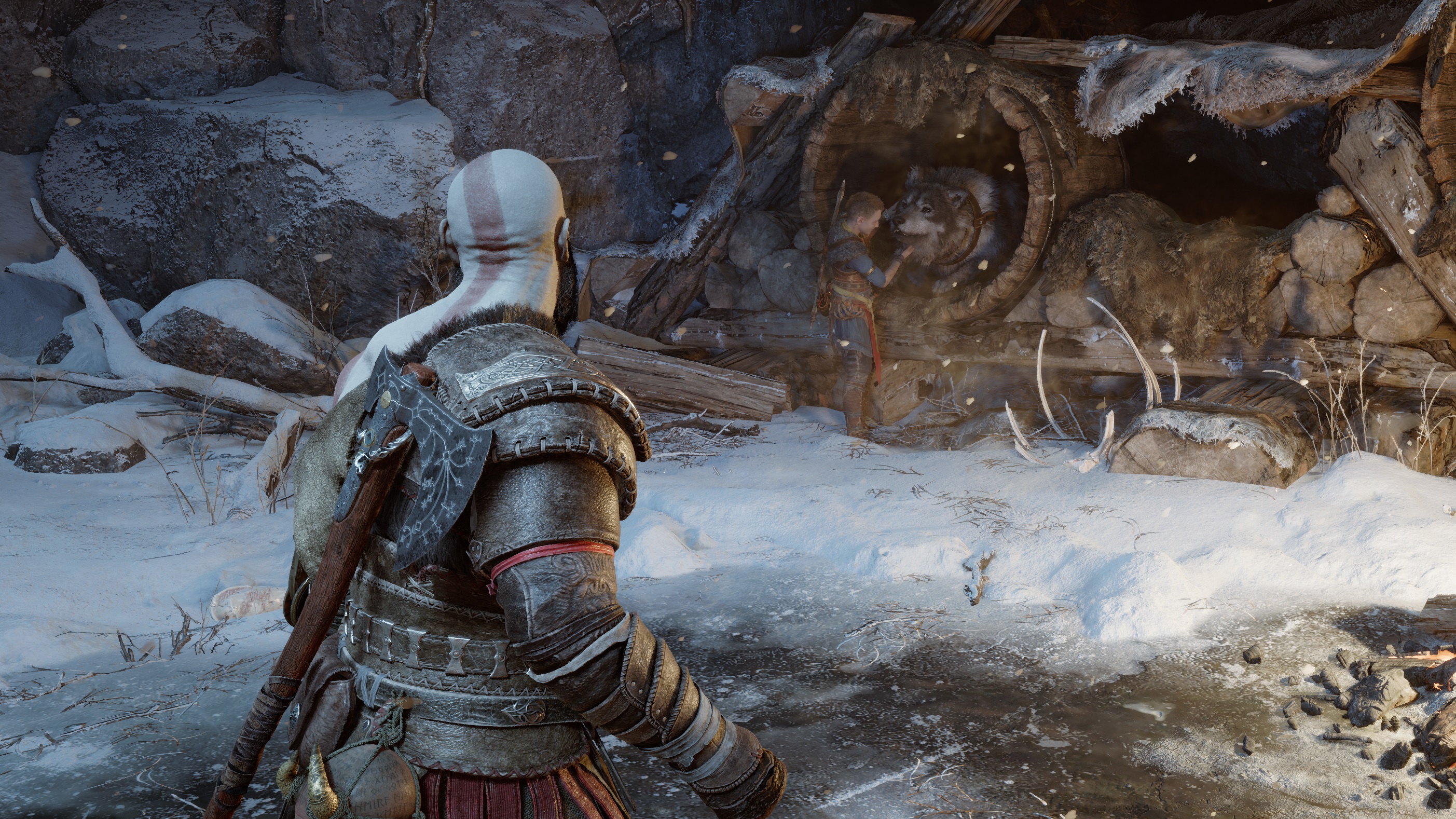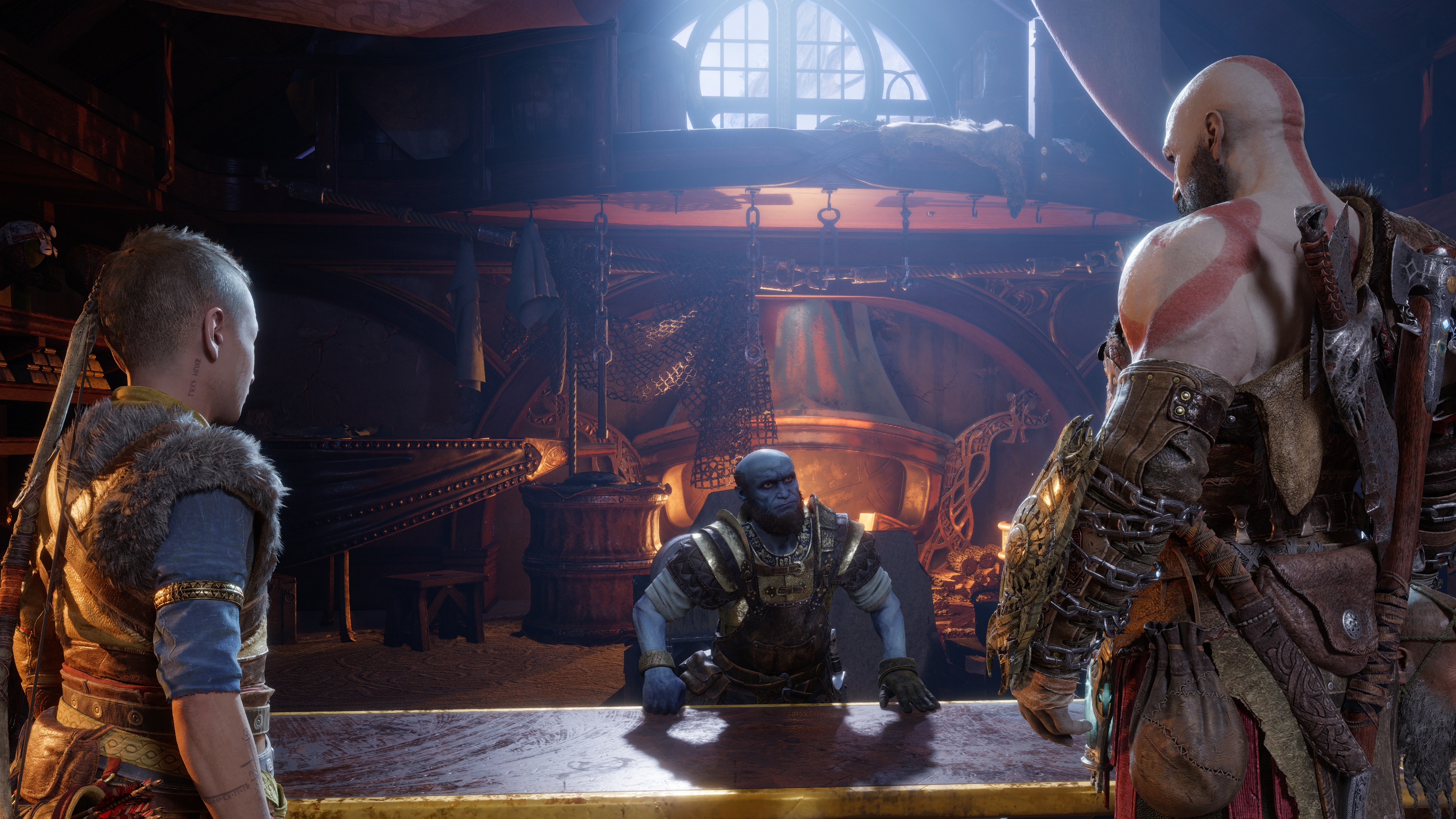
He hasn’t said it yet. The seconds roll into minutes into hours, and at just over seven hours in, I hit the stop button on my iPhone’s timer. My God of War Ragnarok preview period has drawn to a close, and not once in that time did Kratos say the word I’d been expecting to hear. Not once has he called his son Atreus, “Boy”.
The grumbling God of War’s insistence on referring to Atreus by the infantilizing term became a meme when Sony released God of War back in 2018, so the TRG team thought it would be funny for me to run a ‘Time to Boy’ stopwatch as part of my early impressions playthrough of the sequel. Its purpose was simple: how long does it take for Kratos to say “Boy”.
I expected to run the timer for maybe about 30 minutes, an hour at a push, but after a few hours with Ragnarok, Kratos’ silence speaks volumes – it’s purposeful and marks a meaningful change: Atreus isn’t a ‘Boy’ anymore.
Spoilers for God of War (2018) and the first few hours of God of War Ragnarok ahead.
Reaping the fruits

In God of War (2018), Sony Santa Monica beautifully captures the turbulent relationship between demigod Kratos and his young son Atreus, as both struggle to come to terms with the death of wife and mother Faye. The cold, battle-hardened Kratos grapples with the balance between his past as a rage-filled warrior and his new role as a father, and Atreus is caught in the middle.
At the start of God of War, Kratos parents as if he’s training a soldier, he gives orders and expects them to be followed without question. Through the story, we see Kratos soften, and find a balance between who he was and who he is as a parent. By the time the pair scatter Faye’s ashes at the end of the game, father and son have a mutual respect that seemed unachievable when they began their journey.
God of War Ragnarok sees Kratos and Atreus’ relationship reap the fruits of that journey. Picking up a few years after the events of the previous game, Ragnarok presents a more mature and capable Atreus alongside what appears to be a considerably more laid-back Kratos. The short-tempered dad even lets his son lead some of the game’s early missions, such as tracking down Norse God of War Tyr, hoping he can aid them when Ragnarok comes. In these early examples, Kratos places his skepticism of the expeditions, and Atreus’ reasoning for them, to one side: he trusts his son.
Get daily insight, inspiration and deals in your inbox
Sign up for breaking news, reviews, opinion, top tech deals, and more.
Where Atreus once needed help with damn near everything, he’s now pretty self-sufficient and a valuable asset to Kratos rather than a hindrance. Previously shying away from battle, Atreus now enthusiastically gets stuck in alongside his father, allowing you to tag team enemies in a meaningful way. As in the first game, he will fire arrows at your request, but now he’s more inclined to get up close and personal with Draugrs, and he can even fire stunning Sonic arrows that allow Kratos to deliver a devastating final blow. The pair are more of a team this time.
L8er Boi

With Atreus now a teenager, the respect built between father and son in the previous game has grown. Kratos knows Atreus isn’t a young boy anymore and so, in what is perhaps the greatest mark of respect this particular father could give his son, he now refers to him by his name rather than simply as “Boy”.
The word has taken on a new meaning, one of affection rather than humiliation
Emphasizing the change, while Kratos doesn’t say the word “Boy” in the early hours of God of War Ragnarok, it is said by a multitude of other characters. However, when Mimir and other characters say it, “boy” is a term of endearment. The word has taken on a new meaning, one of affection rather than humiliation.
In fact, it’s Atreus himself who first uses the word (around 10 minutes in) when soothing his pet wolf Fenrir. It’s a touching moment, seeing Atreus use it as a term of affection, but it takes on even greater significance when you consider the Norse myths Sony Santa Monica weaves into God of War.
At the end of the last game, we learn that Atreus is part giant and that his mother wanted to call him Loki. In Norse mythology, Fenrir the wolf is the son of trickster god Loki. And while Fenrir isn’t literally Atreus’ son, it’s significant that Atreus uses the term for his figurative son that his father Kratos used with him. Themes of parenting are central to God of War, with Kratos acutely aware (and often afraid) of what he is teaching Atreus. This moment with Fenrir confirms for us and Kratos that he taught his son to be a loving parent, like he himself is below all the bluster.
Like father, like son

Respect, however, is earned and unfortunately for our grizzly demigod, teenage Atreus is going through his mandatory rebellious phase. He’s testing the limits, sneaking out to shrines without Kratos’ knowledge and mocking his father with a cockiness reserved for teenage boys in locker rooms.
We see then, this push and pull between Kratos and Atreus once more. Like any adolescent, Atreus is trying to grow up too fast, he’s carving out his place in the world and how he feels about it. He’s working out who he is and what he wants. And what he wants, it seems, is war with Asgard. Like father like son I guess.
Atreus may not be a boy anymore, but he’s certainly not a man yet – and it’s up to Kratos to make sure he knows it.
An award-winning games journalist, with seven years of experience in games journalism and a degree in journalism from City University, London, Vic brings experience from IGN, Eurogamer, The Telegraph, VG247, Dot Esports and more to the TechRadar table. You may have even heard her on the radio or speaking on a panel, as she’s previously appeared on BBC Radio 4, BBC Radio 5, BBC Radio Ulster and more. Not only is Vic passionate about games, but she's appeared on both panels and podcasts to discuss mental health awareness. Make sure to follow her on Twitter for more.